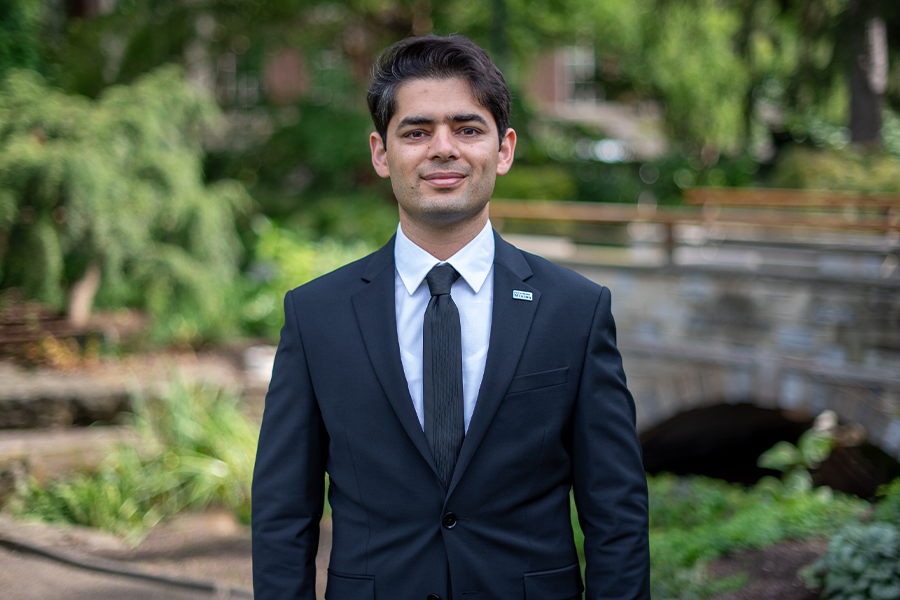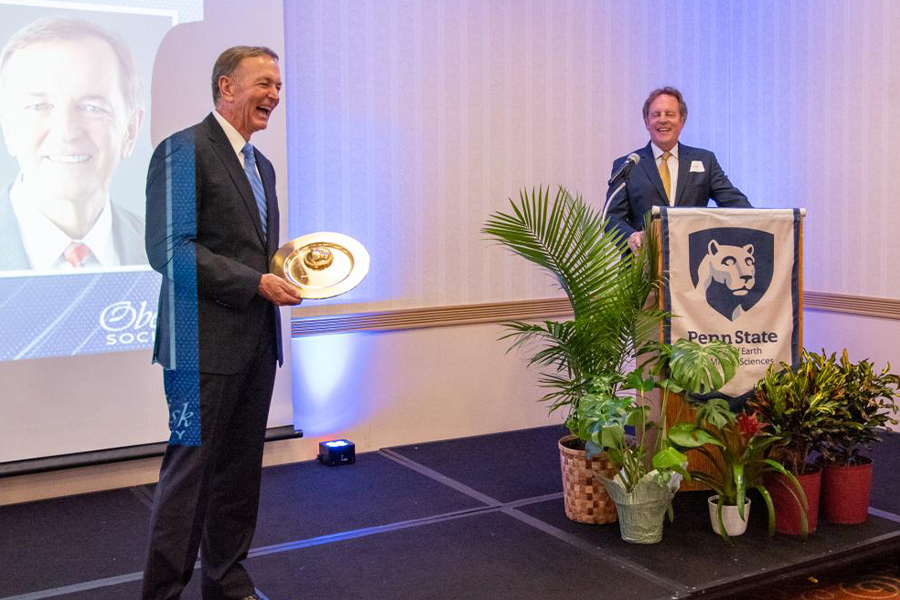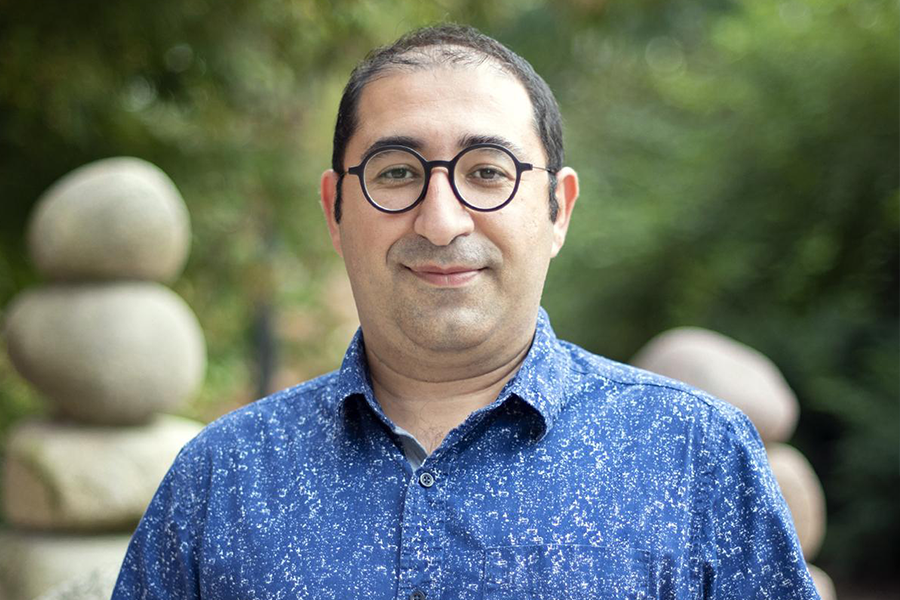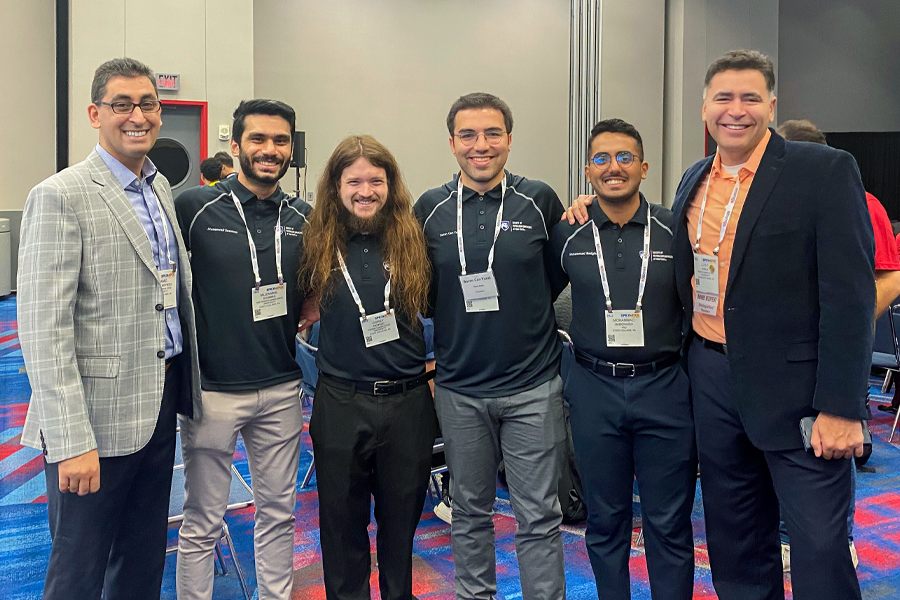The Society of Petroleum of Engineers (SPE) has recognized three faculty members of the John and Willie Leone Family of Energy and Mineral Engineering (EME) for their exceptional service and leadership, as well as their significant professional contributions within their technical disciplines at the regional level.
Next-generation solar materials are cheaper and more sustainable to produce than traditional silicon solar cells, but hurdles remain in making the devices durable enough to withstand real-world conditions. A new technique developed by a team of international scientists could simplify the development of efficient and stable perovskite solar cells, named for their unique crystalline structure that excels at absorbing visible light
Younes Shekarian, a doctoral degree candidate in the John and Willie Leone Family Department of Energy and Mineral Engineering, received the SME Ph.D. Fellowship grant from the Society for Mining, Metallurgy and Exploration (SME). The award helps support exceptional doctoral students who are seeking a career in academia.
Jerry Berkebile, president of Augustin Exploration LLC, in Midland, Texas, is the 2023 recipient of the Colleen Swetland Alumni Achievement Award given by the College of Earth and Mineral Sciences (EMS) Graduates of EMS (GEMS) Board of Directors.
Russell Johns, professor of petroleum and natural gas engineering at Penn State, was selected to receive the 2023 SPE/AIME Anthony F. Lucas Gold Medal from the International Society of Petroleum Engineers (SPE) for technical leadership. The medal is SPE’s highest international technical award. Johns will receive the award at the 2023 SPE Annual Technical Conference and Exhibition scheduled for Oct. 16 – 18 in San Antonio, Texas
Behzad Vaziri Hassas received the 2023 Rong Yu Wan Ph.D. Dissertation Award in Metallurgical Engineering from the Society for Mining, Metallurgy, and Exploration (SME). Hassas, who earned his doctorate in energy and mineral engineering from Penn State earlier this year, was recognized for his dissertation, “Process development for selective separation of critical elements from secondary resources."
Geothermal heat offers a promising source of renewable energy with almost zero emissions, but it remains a relatively expensive option to generate electricity. A new technique proposed by Penn State scientists may help prevent “short-circuits” that can cause geothermal power plants to halt production, potentially improving the efficiency of geothermal power, the researchers said. They published the work in the journal Energy.
The Penn State Society of Petroleum Engineers student chapter won the 2023 Presidential Award for Outstanding Student Chapter, as recognition for going above and beyond the Society of Petroleum Engineers (SPE) mission to engage the industry, serve local members and the community, and participate in social outreach. The award is the highest honor the society bestows college chapters, with only three U.S. universities receiving the distinction. The award marks a growing recognition for the chapter, which previously won the Student Chapter Excellence Awards in 2022 and 2020.
The College of Earth and Mineral Sciences has announced the appointment of Shelley Corman-Frisby, a 1985 graduate in mineral economics, to the Graduates of Earth and Mineral Sciences (GEMS) board of directors. Corman-Frisby will commence her three-year term on July 1.
Ezgi Toraman, assistant professor of energy and mineral engineering and chemical engineering at Penn State, is one of 12 early-career scientists named to Chemical & Engineering News’ (C&EN) 2023 “Talented 12” list that highlights early-career researchers in the chemical sciences who are fearlessly tackling difficult global problems. Toraman was selected for her research in technologies that turn waste into fuels, chemicals, and other products.











